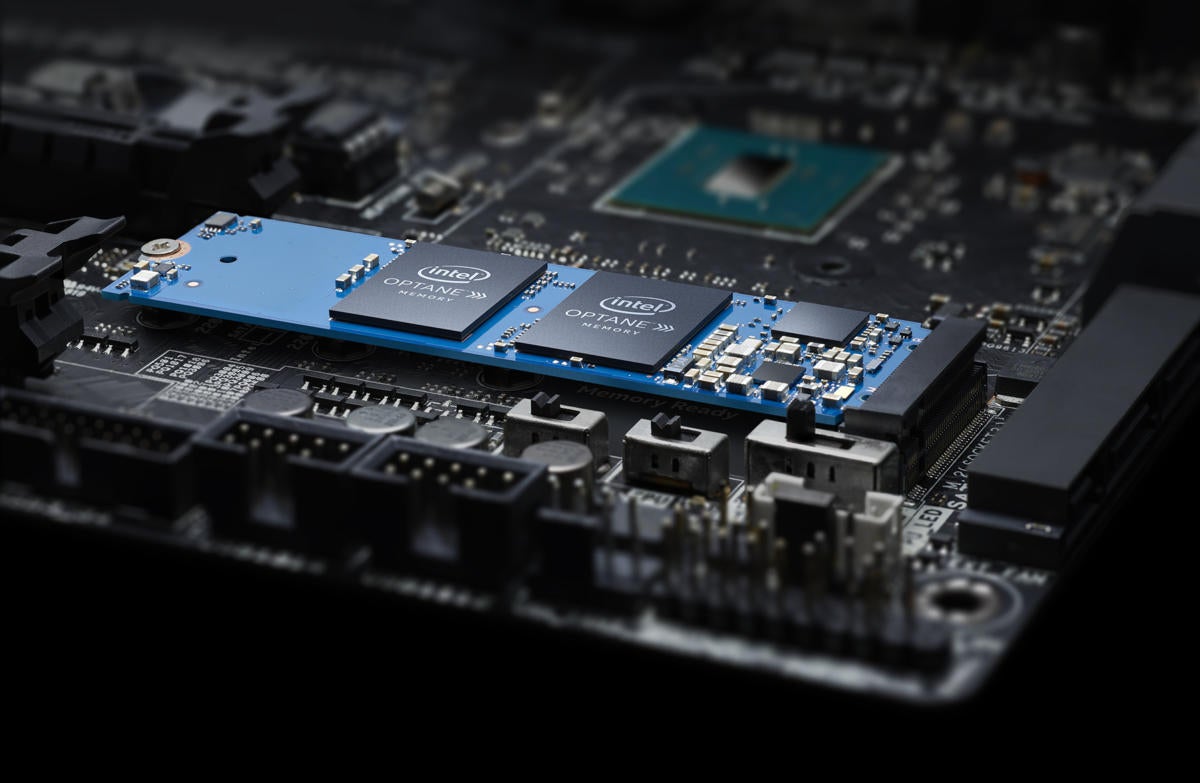Two long years after Intel debuted its radical—and awesome—Optane Memory caching SSDs, the company has finally decided to embrace the processors that could appreciate the technology’s benefits the most. A recent Optane Memory driver update added support for Intel’s budget-friendly 8th-gen Celeron and Pentium CPUs, as Anandtech noticed this weekend.
Optane Memory gives pokey mechanical hard drives a shot of SSD-like speed by intelligently caching your most-used programs and files to speed up access. You install an Optane Memory drive in an M.2 slot on your motherboard, and Windows sees it and your hard drive as a single combined storage pool. Intel’s software delegates which data should go on which drive. When you open a commonly used program that’s stored on the Optane Memory, speeds drastically increase. It makes a world of difference in terms of raw performance.
Better yet, Optane Memory modules fit into budget builds, costing just $33 for a 16GB drive or $60 for a 32GB cache on Amazon.
That should make Optane Memory a juicy upgrade for budget big-box desktop PCs filled with spacious hard drives, right? Wrong—at least until now. Intel made the baffling decision to limit Optane Memory compatibility to systems configured with pricier Core processors. Those machines tend to come loaded with native solid-state storage that don’t need Optane Memory’s benefits. Now that the technology plays nicely with processors that actually come paired with mechanical hard drives on a regular basis, it makes a lot more sense to invest in an Optane Memory stick.
Hopefully the shift didn’t come too late for the futuristic storage tech. In January, Intel killed “Core+”-branded computers that pair its processors with Optane Memory, claiming that desktop buyers choose to buy their processor and Optane Memory modules separately. The bundles persist for laptops.
Buyer beware: If you’re interested in giving your hard drive more pep in its step, be careful about the Optane solution you’re buying. The affordable Optane Memory modules discussed here act as a caching solution that augments spinning drives, while pricier products like the Intel Optane 905P—our pick for the fastest SSD available—are a more cutting-edge take on standalone solid-state storage, instead.
